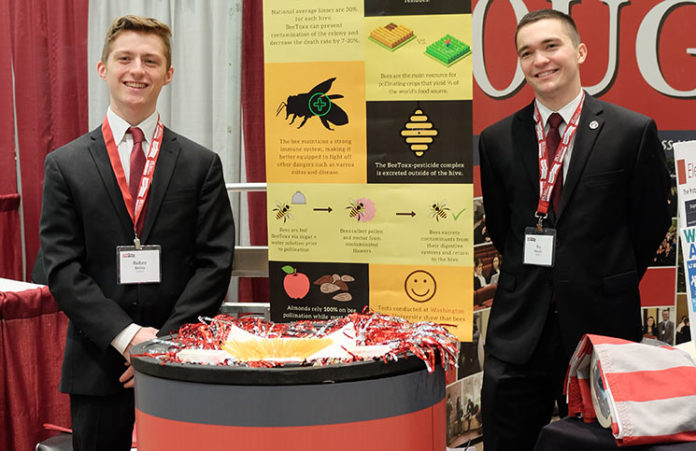“We hire you for your technical skills, and we fire you for the social skills that you lack.”
When Washington State University Vancouver Professor of Management and Sr. Associate Dean for Academic Affairs Tom Tripp heard that about Carson College of Business students, he knew his work was cut out for him.
For three years, Tripp has chaired a systemwide task force of Carson College of Business colleagues convened to transform the undergraduate business school across all campuses. When they reached out to business owners who had hired WSU graduates, they got a lot of positive feedback about students’ knowledge of technical skills, their camaraderie and their “scrappiness.” But they heard time and again that graduates were lacking so-called soft skills, such as collaboration, punctuality, respectfulness, honesty, persuasiveness, leadership and critical thinking. This feedback from employers, recommendations from other stakeholders and a competitive analysis of peer schools ultimately led to the newly launched program, Next Carson Coug.
Next Carson Coug will roll out in fall of 2019, and components include:
- Earlier declaration: The program will move the declaration of major up from the end of sophomore year to the end of freshman year, introducing students to the college course work earlier in the process.
- New courses: The program will add nine new courses, which will total to 11 new credits during freshman and sophomore years.
- Smaller classes: The program aims to reduce the number of students enrolled in all core classes to an average of 70 students per face-to-face section. Online classes will continue to cap discussion sections at 45 students.
- Co-curricular requirements: Students will be required to participate in co-curricular activities, and track them.
Tripp said many of the systemwide changes were influenced by activity already in place at the Vancouver Campus.
“We were heavily involved in the evolution of Next Carson Coug,” he said.
Smaller class sizes – around 45 to 50 – have always been the norm in Vancouver, and they have naturally fostered more student engagement in the form of discussion, role playing and more.
“Straight monologue lectures – or the ‘sage on the stage’ – are not effective in business meetings and they’re not effective on college campuses,” Tripp said.
WSU graduates more business majors than any other school in the state, said Tripp. About 2,200 students systemwide, including 350 in Vancouver, are official business majors. The Vancouver campus has 16 full-time business faculty and 8 to 10 adjuncts in any one term. Both faculty and student numbers are expected to increase locally. But classes aren’t everything.
Co-curricular activities are at the heart of increasing both soft skills and business community connections, including joining clubs, participating in recruitment activities and internships, and effectively using professional networking platforms such as LinkedIn. Previously, students were encouraged to participate, but starting in 2019, Carson College of Business undergraduates will be required to participate in co-curricular activities through a new milestone system that provides a menu of activities and tracks involvement.
Because of Vancouver’s urban proximity, local students have a lot more face time with the business community than students in Pullman. While not currently a piece of Next Carson Coug, the university is considering “scaling up” Vancouver’s successful Business Growth Mentor and Analysis Program (MAP) to connect Carson students with business owners across the state.
After a long, thorough and deliberate process, Tripp is more than optimistic as fall draws near.
“I’m excited about two things: One, we have pretty good graduates, and they are going to get even better, and two, we are going to have students much more engaged in the business college.”




